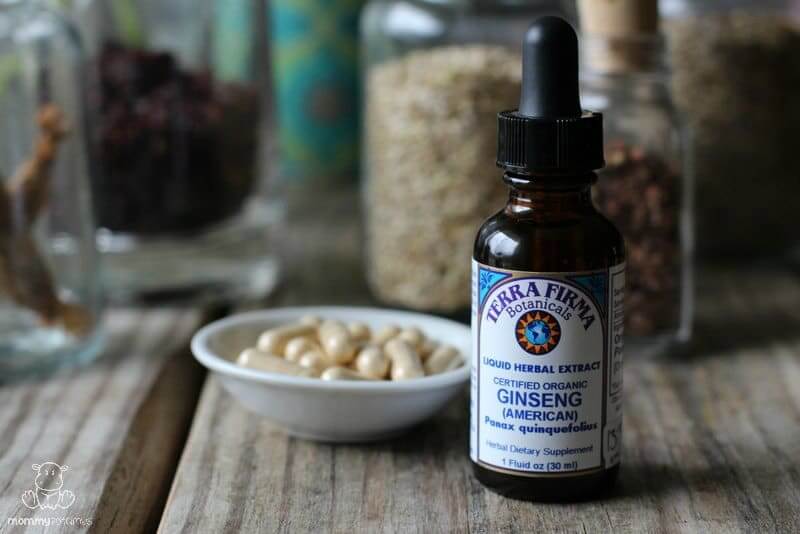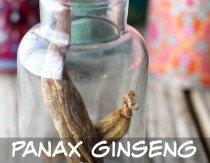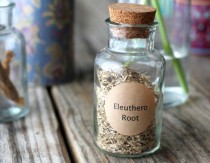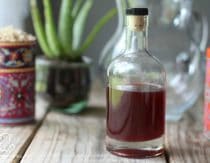Cherokee Indians considered it the chief of the medicine plants, and “Daniel Boone, in Kentucky, made his fortune trading [American] ginseng, although he is remembered as a fur trader.” (Source: Adaptogens: Herbs for Strength, Stamina and Stress Relief)
American ginseng (Panax quinquefolius) is an adaptogen – or herb that helps the body adapt to stress – that is believed to support:
- energy levels
- cognitive function and memory
- immune function
- detoxification (source)
It is considered less stimulating than its cousin, Panax Ginseng, which makes it “more appropriate for regular use by younger people of both sexes, and for people with Type A (yang) personalities.” (Adaptogens in Medical Herbalism)
Important note on sourcing American ginseng
A recent sustainability assessment made by a well-respected herbal supplement company caused them to discontinue using it in their formulas. They found that although there are increasing efforts to cultivate and collect it responsibly, it is currently and at-risk species due to over harvesting. I am taking a break from using it in my tinctures, teas, etc., but will continue to check on its availability from sustainable sources.
When I come across a recipe that uses American ginseng, I plan to use eleuthero (Siberian ginseng) instead. It has very similar properties and is more affordable as well.
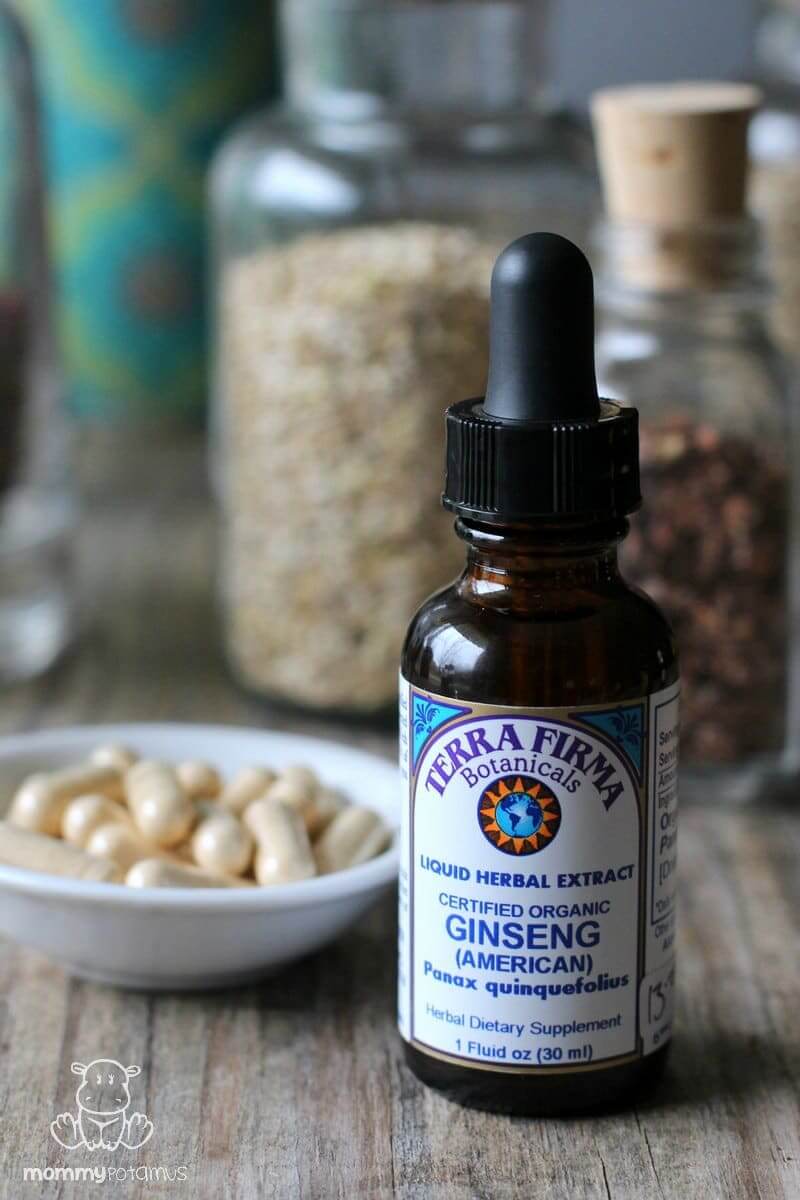
Is American Ginseng safe during pregnancy and breastfeeding?
Opinions on the safety of American ginseng during pregnancy are conflicting. In Botanical Medicine for Women’s Health, Dr. Aviva Romm – a Yale-educated M.D., midwife, and herbalist – lists American ginseng as an herb that is contraindicated for pregnancy according to some experts, yet has a history of use by pregnant women in traditional Chinese medicine.
She also notes that it is considered a Category A substance by the Australian Department of Health Therapeutic Goods Administration, which is defined as “drugs that have been taken by a large number of pregnant women and women of childbearing age without any proven increase in the frequency of malformations or other direct or indirect harmful effects on the human fetus having been observed.”
The Mills and Bone Safety Classification system also lists American ginseng as a Category A herb, along with German chamomile, cranberry, echinacea, garlic, ginger, red raspberry leaf, and others.
How much should I take?
Adaptogens are herbs rather than pharmaceutical drugs, so there are no dosages. However, herbalists do share knowledge about what methods of consumption seem to produce a beneficial effect for most people.
In general, ginseng is not recommended as a stand alone herb, but rather as part of a blend in which it comprises about 10-20% of the total mixture.
Regarding specific amounts, ethnobotanist David Winston and herbal expert Steven Maimes recommend the following in Adaptogens: Herbs for Strength, Stamina and Stress Relief:
- For a 1:5 tincture (1 ounce dried ginseng by weight, mixed with 5 ounces of 60 proof or higher alcohol) – 60-100 drops three times per day.
- As a decoction – Simmer 1-2 teaspoons dried American ginseng root in 12 ounces water for about 30 minutes, then let infuse for an additional 30 minutes. Strain and take 3-4 ounces three times per day.
- Capsules – Two 500 mg capsules, twice per day.
What else do I need to know?
According to the Botanical Safety Handbook, “Concomitant use of warfarin and American ginseng may reduce the efficacy of warfarin and should be under the supervision of a healthcare professional (Yuan et al. 2004).” (p. 625)
Also, “Human studies have demonstrated that American ginseng may modify glucose regulation (Sotaniemi et al. 1995; Vuskan et al. 2000a, 2000b). People with diabetes are advised to monitor their blood sugar closely and discuss the use of this herb with a qualified healthcare practitioner prior to use.” (Botanical Safety Handbook, 625)
Want more research-backed natural remedies?
No problem, I’ve created a free ebook for you – Kitchen Apothecary: 25+ Natural Remedies Using Ingredients From Your Pantry – as a gift for signing up for my newsletter. You’ll also get updates when I post about safe essential oils for pregnant/breastfeeding mamas, exclusive gifts and coupons (I was able to give away a jar of free coconut oil to anyone who wanted it recently!), plus other goodies.
Sign up using the form below.
This article was medically reviewed by Dr. Scott Soerries, MD, Family Physician and Medical Director of SteadyMD. As always, this is not personal medical advice and we recommend that you talk with your doctor.

